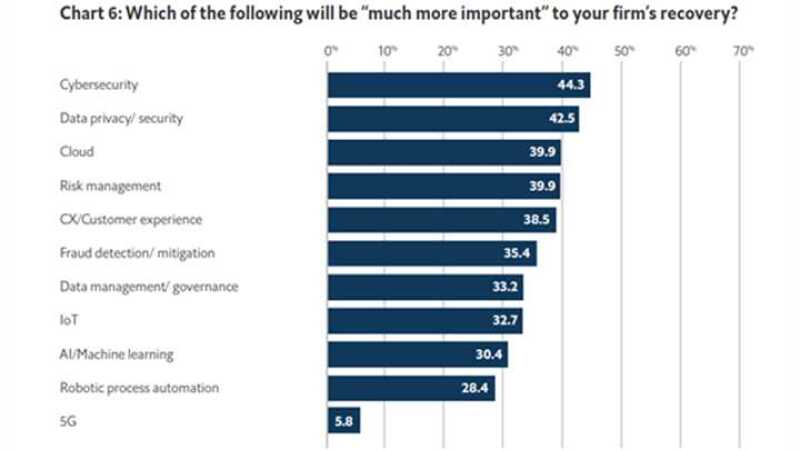In the five years to 2025, the cumulative benefits of businesses shifting from 4G to 5G could stand at more than £38bn, and for the five years to 2030 they stand at more than £120bn.
Over 10 years, this means a productivity-based boost to UK output worth more than £150 billion, with retailers likely to benefit first as mobile innovations bring new interaction and personalisation to e-commerce.
The news broke as PM Boris Johnson outlined plans to build a "digital culture" in the UK through investment, innovation and talent development initiatives.
Guillermo Pedraja, head of networks, 5G and IoT consulting at NTT DATA UK said: “5G is a gateway for businesses to enter into a more innovative and productive future.
“Looking ahead, telecoms providers need a clear vision and elevated ambition from government about the future of the UK's 5G networks. In particular, a definitive answer on the equipment vendors cleared for involvement in UK 5G infrastructure. This will give businesses a clear road-map for the future and reinforce the predicted boost in productivity from this revolutionary technology,” he added.
However, further insight published today demonstrated a marked decline in the importance of 5G to business executives, with the new tech now falling down the priority list behind cyber security and risk management.
Changing attitudes towards 5G
The annual Global Business Barometer by The Economist Intelligence Unit and SAS, concluded that the pandemic had reshaped the IT and communications priorities of organisations across 21 industries, and that the business world remains in “survival mode” as a result of the Covid-19 pandemic.
Further, the analysis found that business leaders are prepared for the global economy to become “much worse” over the coming months, with sentiment averaging -27.7 on a scale of -50 to +50.
When given a choice of 11 answers (see graphic) only 5.8% of 2,758 executives said that 5G would be “much more important” as their business emerged from the current pandemic.
As many as 44% of respondents said cyber security will become “much more important” as a result of the Covid-19 pandemic, followed by data privacy. Risk management and cloud computing tied as the third most popular priorities.
Meanwhile 41.6% of executives said they felt 5G would be “somewhat less important” to their firm’s economic recovery.

According to the report, geopolitical concerns, conspiracy theories and robust 4G networks have “dimmed enthusiasm” for the technology.
Pedraja commented: “Covid-19 has been a difficult time for 5G adoption. Network providers have focused on maintaining existing networks, with a deceleration in some 5G deployments. The pandemic has even bred an atmosphere of distrust around 5G technology, with conspiracy theorists attacking network infrastructure and muddying the debate on the value of 5G, which has set back deployments as well.”
Despite the reported challenges, 5G developments and deployments continue – with Covid-19 creating roadblocks, but unlikely to delay overall progress.
“The [UK] government is on board with 5G adoption across industries which will help push adoption forward. We have also seen several notable projects progress during lockdown too, such as the Telefonica UK 5G accelerator in the Midlands, or Vodafone’s private 5G network deal with Ford, demonstrating business positivity towards 5G,” Pedraja said.
Despite ongoing debate about the future role of Huawei, NEC and Samsung have been invited to participate in UK 5G with the British Government actively seeking new suppliers for both 5G and 6G.
Outside the UK, this week MTN will launch its 5G network. In January MTN Uganda jointly launched the first 5G Standalone (SA) network in East Africa with ZTE.
Last week Phoenix Contact, Quectel and Ericsson announced they have developed and deployed the first industrial 5G router for local industrial applications in a private 5G network, and Telia customers from Finland, Norway and Sweden can now use their mobile phone while travelling abroad between the 5G-networks that Telia is building in those countries.
In April Sweden turned on its commercial 5G network and China Mobile awarded contracts for 5G build outs. By year end, Verizon will have deployed 5G home internet in 10 cities across the US following 5G ultra-wideband mobility services being launched in three more US cities. Its mobile deployments continue while AT&T now delivers 5G to 160 million people across the US.
“For the second half of 2020, supply chain disruption may still slow the movement of key equipment parts around the world. Nevertheless, Covid-19 has accelerated the growth of the digital economy, and 5G has a key role to play in supporting the ‘new normal’ of the expanded digital economy, building a more connected world,” Pedraja said.
To further expedite the deployment of 5G standalone (SA) networks, GSMA has released new guidelines providing technological, spectrum and regulatory support to operators.
The latest version of the 5G SA guidelines 5G Implementation Guidelines: SA Option 2 are released today at 17:00 Beijing time during its virtual event, Thrive China.









